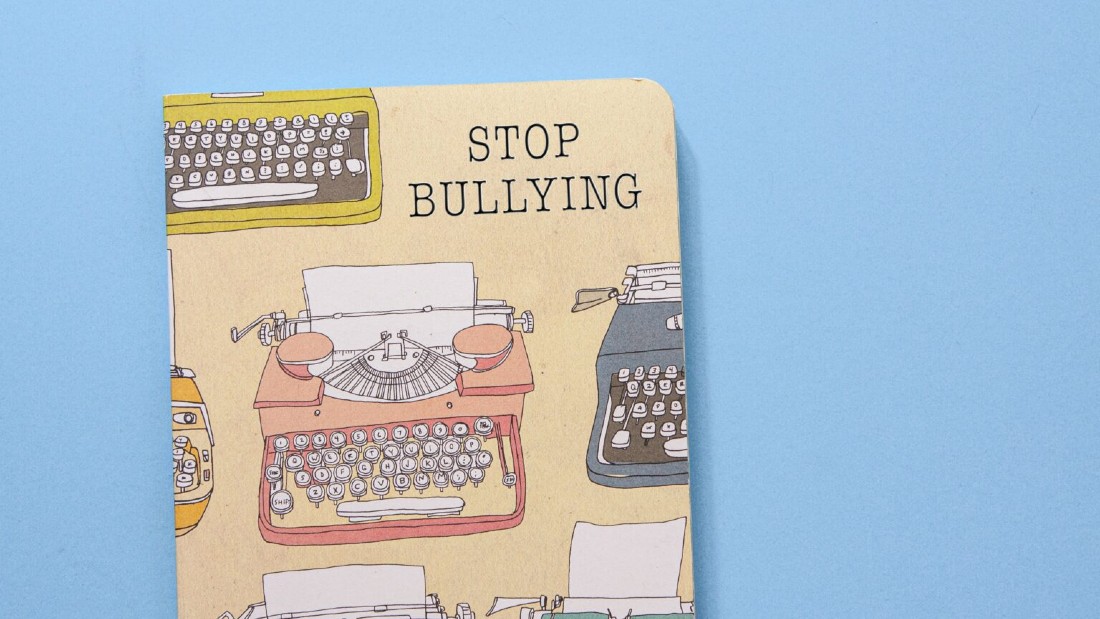
Are you BULLY-PROOF?
It is annoying, distasteful and damaging to your self esteem. But with the right tools, you can protect yourself from that meanies and thrive long enough to see the bullies for the scared and unhappy people that they are.
So lets get start with the basics;
Physical bullying: Is often easily recognised and will involve pushing, punching, pinching, hitting, kicking, tripping or damaging of property.
Verbal bullying: Can be done openly or secretly. Involvesthreatening, verbal abuse, teasing, name calling, insults, racist remarks or other statements meant to put you down.
Social bullying: This is designed to humiliate or harm someone’s reputation. It is often the most difficult to identify as it is often done behind the victims back. It Involves excluding or encouraging others to socially exclude someone from a group or activity, playing nasty pranks to humiliate another person, damaging someone’s reputation with friends, teachers or colleagues, making negative facial gestures or making disapproving looks towards the person, lying and spreading rumours about a person and mimicking him or her unfairly amongst other acts.

Cyber bullying: Often undertaken through digital technology such as computers and smartphones and done over social media, websites, emails, SMS or other online platforms. Like social bullying, cyber bullying is meant to damage the name and image of another person either by spreading falsehoods about them on social media, sharing their private information with the public and impersonation and trolling.
How can bullying affect me?
Bullying is an attempt to instil fear and self-hate in a person. Victims of bullying (regardless of their age, sex, religion or class) often suffer from depression, anxiety, low self-esteem, loss of appetite, loneliness, poor performance in school, self-isolation, sleep deprivation and withdrawal from previously pleasurable activities. The most damaging cases have been of children and teenagers committing suicide as a result of bullying. Research shows that these negative effects of bullying could last your whole life if not addressed. Victims of childhood bullying have higher chances of emotional disorders when they become adults. As adults, they are likely to turn into bullies themselves, have low self-esteem, lower educational skills (especially if they dropped out of school or performed poorly due to bullying), work in low skill jobs and earn less than their colleagues during their productive years.
How are bullies born?
It is often said that, ‘hurt people hurt others’. Bullies are made. They are not born. They are human just like you, but with very poor social and communication skills. Bullies are often older, stronger, more popular and/or in higher positions of power or authority. If you are a victim of bullying you must always understand that you are not responsible for the bully’s actions. His or her behaviour started out at a young age probably because they were or are still being bullied by abusive parents, relatives, siblings or caregivers. Living in a negative environment with poor communication, has had them convinced that is only by being mean to others that you can be safe, accepted and/or get your way around. They may also be seeking ways to compensate for the lack of control they feel in other spaces. Over time, bullies also suffer the short term and long term effects of bullying. They are at a high risk of anti-social personality disorders as their tempers and aggression are often shunned by society. They grow up into unhappy and excluded adults and are also likely to be suicidal. They experience difficulties holding jobs and creating healthy personal and social relationship because they are difficult to be around.

How do I bully-proof myself?
You may feel helpless as a victim especially if the bully is someone close to you (parent, caregiver, or sibling). You may also be tempted to feel sorry for the bully if you know that he or she is also a victim in another environment. However, by not tackling the vice you will be participating in spreading the negativity around. Also, as you have already read, bullying does not end in kindergarten or high school and it is therefore important that you learn the tools to protect yourself and those around you from its longstanding damages.
1. Acknowledge that you have been bullied: Bullying comes with its fair share of shame, regret and humiliation. It creates a feeling of helplessness and hopelessness. Take care though not to wallow in these feelings for too long as they have the potential to develop into depression, anxiety or other emotional disorders. Note that it is not your fault that the bulling is happening and take the necessary actions to get help and feel better about yourself.
2. Stay Connected: Bullies often isolate you so that they can continue to harm and humiliation you. You may also isolate yourself from people out of shame or worry for what is happening to you. Isolation does not help your situation. Stay connected. Avoid the bully at all costs but stay in touch with positive friends, teachers, colleagues and family members with whom you can get encouragement and support.
3. Tell! Tell! Tell! And do it quick: With your isolation comes your silence. Often times, bullying starts in small and unnoticeable ways either by name calling, teasing or shoving in the corridors. The bully is testing the waters. If you show fear, keep quite or offer no resistance then they see that as an opportunity to escalate their malicious acts. It is your responsibility to create awareness on what is happening to you if you are to be assisted. Reporting the issue sooner-rather-than later- nips all bullying in the bud.
4. Learn to be assertive, stand up to the bully: Bullies are repelled by assertiveness and they pick on non-verbal signs of weakness such as shrinking back or looking and running away. Being assertive means that you are able to clearly express your needs, positions and boundaries while respecting the thoughts and wishes of others. Assertive people are firm without being rude and they are not afraid of defending their views or positions. Learn non-verbal assertive strategies such as maintaining eye contact, standing and walking tall, talking in an even and calm voice and using the bullies name when speaking to him or her.

5. Build your self-worth: Bullying is what happened to you. It is not who you are. Do not let being bullied define you or the life you are living. Focus instead on the positive things around you. What do your friends say about you? What good things have your teachers complimented you about? What about your parents and siblings? Let the words and actions of those that matter be the loudest in your head and in your life.
What bullying is not
Disagreements, fights or mutual arguments
Random acts of intimidation or aggression
Isolated incidences of meanness or unkindness
Isolated episodes of dislike or social rejection
(While the above actions are likely to cause anguish they may not be considered bullying unless they are done deliberately and repeatedly)




